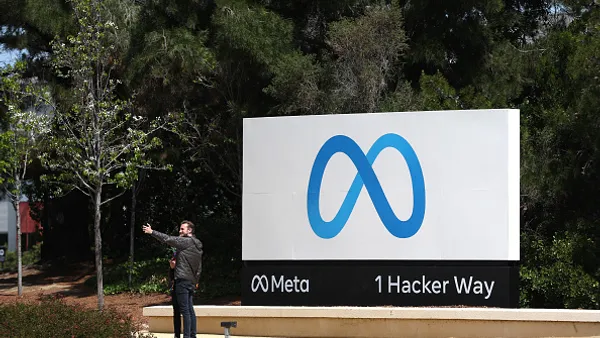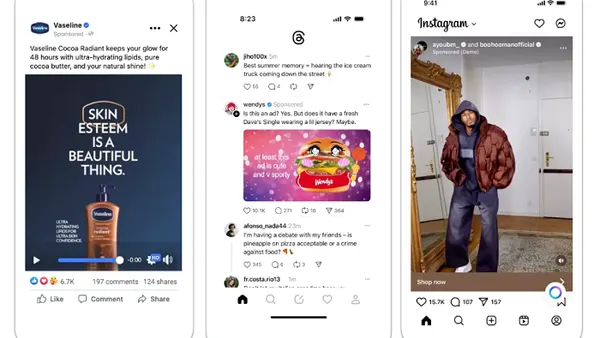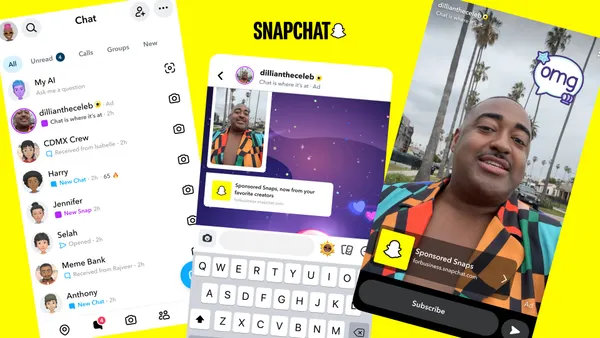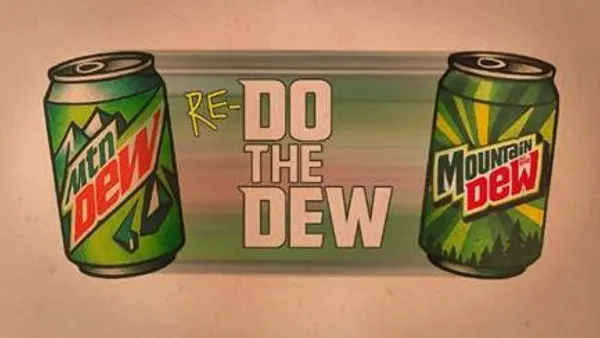Brief:
- Pinterest for the second straight year had the highest ranking among social media companies for customer satisfaction, while Facebook had the lowest score, a study shared with Mobile Marketer found. Pinterest scored an 80 on a scale of 1 to 100 on the University of Michigan's American Customer Satisfaction Index (ACSI). After dropping in 2018, customer satisfaction with social media overall this year held steady at 72.
- YouTube improved its customer satisfaction score by 4% to 78, the second-highest ACSI rating. Wikipedia saw a 4% decline in its score to 74, while Instagram was little changed at 72.
- Snapchat debuted in the ranking with a score of 71, receiving high marks for mobile quality. LinkedIn and Twitter rose 5% to tie at 69. Verizon Media's Tumblr fell 6% to an all-time low of 64, while Facebook dropped 6% to a social media industry low of 63, per the ACSI.
Insight:
As ACSI notes, customer satisfaction with social media isn't falling as it did in 2018, but the industry has room for improvement. Social media remains one of the lowest-performing categories in the index, lingering in the bottom six among the 46 industries that ACSI tracks. While 70% of U.S. adults use social media to connect and share information, they are becoming more concerned about data privacy and expect action from major social media companies, per ACSI's report. If social media companies don't work to self-regulate, as the financial services industry has done with trade groups like the Financial Industry Regulatory Authority, U.S. lawmakers may respond to political pressures to intervene with stricter privacy laws like those seen in the European Union.
Facebook has the most room for improvement a year after the company’s reputation suffered during the Cambridge Analytica scandal that exposed its lax data-sharing practices. It also has faced accusations of allowing Russian interference in U.S. elections, spreading fake news and censoring political speech. Facebook's privacy rating reached an all-time low, and it also rates lowest for how much advertising it displays, the ease of uploading photos and videos and content relevance, per the ACSI report.
Facebook last week agreed to pay a record $5 billion fine to settle a Federal Trade Commission complaint about its alleged "deceptive disclosures and settings" that undermined user privacy, violating a prior agreement Facebook signed with the commission in 2012. While the fine is hefty, critics have said it isn't enough to ensure consumer privacy on Facebook. So far, low customer satisfaction hasn't slowed Facebook's revenue and user growth. The company last week reported a 28% revenue gain to $16.9 billion Q2 from a year earlier, while Facebook's main app boosted its user base by 8% to 2.41 billion worldwide.
Instagram's ACSI score of 72, which is in line with the industry average, also could be improved as the image-sharing app becomes a key source of revenue growth for Facebook. The company doesn't break out results for Instagram, although CFO Dave Wehner said during a Q1 conference call in April that Facebook's 32% annual increase in ad impressions was "primarily driven by ads on Instagram Stories, Instagram Feed and [the] Facebook News Feed."
Pinterest's top score for customer satisfaction reflects its content relevance and variety of information, per the ACSI survey. The image-pinning platform ranked highest among social media companies for showing ads that users considered most acceptable, and had the best score for mobile app quality, which ACSI measured for the first time this year. Pinterest has worked to avoid being labeled as a social media company, which carries a negative stigma amid concerns about personal privacy and mental health. The platform mostly has a reputation for being a place where people collect inspirational images of things that make them happy. In that vein, Pinterest last week introduced an ad-free collection of activities and resources to help users cope with stress and anxiety.
YouTube's improved ACSI rating to a No. 2 ranking is positive for parent company Alphabet, which doesn't disclose much information about the video-sharing platform. YouTube's power comes from the wide variety of content that creators post to its site, making it "a launchpad for performers, businesses and commentators on every conceivable subject," a Pew Research Center study said last week. Its research found that almost 44,000 YouTube channels can be considered popular by having at least 250,000 subscribers.











